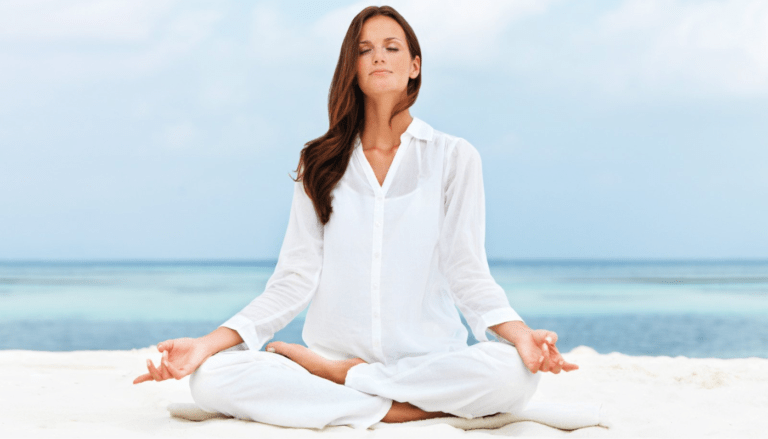Most people think dizziness is only caused by low blood sugar or dehydration. But guess what? Being tired, really tired, can make you dizzy too. It’s not just in your head; there’s a solid link between exhaustion and dizziness that many overlook. If you’ve ever asked yourself, “Can exhaustion cause dizziness?” or “Can extreme tiredness make you feel off balance?” you’re not alone. Let’s dive into why this happens.
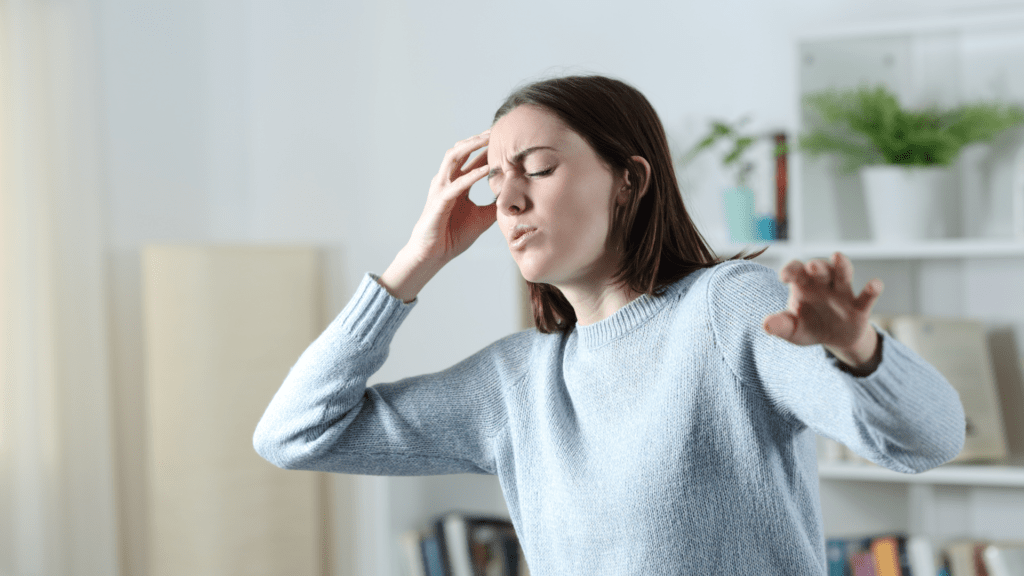
Why Does Being Tired Make You Dizzy?
When you’re exhausted, your body’s systems struggle to function optimally, leading to symptoms like dizziness. Lack of sleep can disrupt your inner ear balance and decrease blood flow to the brain, making you feel lightheaded and unsteady.
How Fatigue Affects Your Balance
Your body relies on multiple systems to keep you balanced—your vision, inner ear, and sensory nerves. When you’re well-rested, these systems work together seamlessly. But when you’re running on empty, things get a little shaky. Being tired or sleep-deprived throws your body’s balance system off track. This is why many people experience dizziness from tiredness.
How Exhaustion Disrupts Your Balance and Causes Dizziness
Your inner ear plays a crucial role in maintaining balance. When you’re exhausted, your body doesn’t process signals from your inner ear effectively, leading to that lightheaded, unsteady feeling we commonly call dizziness. Can being tired make you dizzy? Absolutely—when you’re overly tired, your inner ear struggles to keep up, causing sensations like the room spinning. The question “Can lack of sleep cause dizziness and lightheadedness?” is more common than you think. The answer is yes—lack of sleep disrupts your body’s ability to maintain balance, leading to dizziness.
Additionally, when you’re fatigued, your brain’s communication with your body slows down. This sluggishness can make you feel off-balance or even cause vertigo. It’s not just about feeling sleepy; it’s about how fatigue messes with your body’s equilibrium. So, the next time you wonder, “Can lack of sleep make you feel off balance?” remember that tiredness impacts more than just your energy levels.
The Brain’s Response to Lack of Sleep
Your brain is like the control center of your body, managing everything from your movements to your emotions. When you’re well-rested, your brain functions at its best. However, when you’re sleep-deprived, things can go haywire. So, can being tired make you dizzy? Definitely. Sleep deprivation disrupts your brain’s ability to process balance and spatial orientation, leading to dizziness and other unsettling symptoms. This is where the question, “Can sleep deprivation cause dizziness?” comes into play.
When you don’t get enough sleep, your brain’s ability to process information slows down. It’s like trying to run a computer on low battery—it just doesn’t work as efficiently. Lack of sleep causes the brain to lag, affecting your sense of balance and coordination. This is why you might feel “dizzy when tired.” Your brain is trying to keep up with everything, but it’s running on fumes.
The Impact of Sleep Deprivation on Brain Function and Balance
Sleep deprivation also affects the parts of your brain responsible for maintaining balance and spatial orientation. This disruption can lead to a feeling of being lightheaded or dizzy. Your brain is essentially misfiring signals, leading to the sensation that you’re not entirely steady on your feet. If you’ve ever felt like you’re “off” after a sleepless night, that’s your brain struggling to maintain balance.
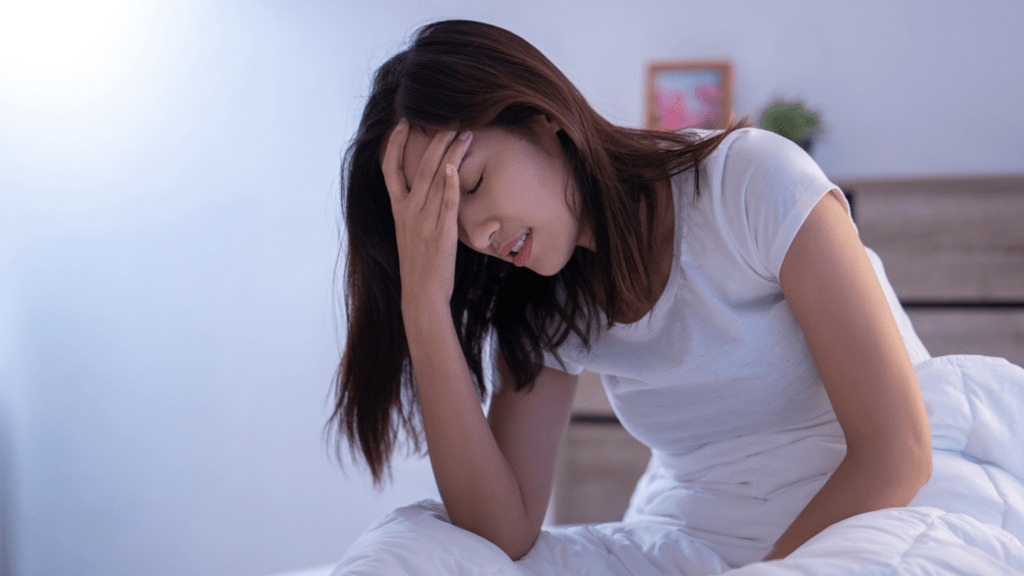
Chronic lack of sleep can exacerbate these symptoms even further. Prolonged sleep deprivation can lead to more severe forms of dizziness, including vertigo. So, can being tired make you dizzy? Absolutely. Over time, the brain’s ongoing struggle with fatigue due to lack of sleep can lead to more intense and persistent symptoms, such as severe dizziness and vertigo. The question, “Can lack of sleep cause vertigo?” is valid because the effects of chronic tiredness can significantly impact your balance and spatial orientation.
So, if you’ve been skimping on sleep and find yourself feeling dizzy or unsteady, it’s not just in your imagination. It’s your body’s way of signaling that it needs rest to function properly. Sleep isn’t just for recharging energy; it’s crucial for maintaining balance and clear thinking.
The Role of Sleep Deprivation in Lightheadedness and Vertigo
Sleep deprivation impairs the brain’s ability to process balance and spatial orientation, often resulting in lightheadedness and vertigo. Over time, chronic lack of sleep can exacerbate these symptoms, making dizziness more intense and persistent.
How Lack of Sleep Leads to Lightheadedness
You might have noticed that when you’re extremely tired, you feel more than just sleepy—you feel a little “off.” That’s because sleep deprivation doesn’t just make you feel drowsy; it affects your entire body, including your circulation. When you’re sleep-deprived, your heart rate and blood pressure can drop, leading to reduced blood flow to your brain. This can cause lightheadedness, especially when you stand up quickly.
Lightheadedness is often the first sign that you’re not getting enough sleep. It’s that sensation where you feel like you might faint or lose your balance. The reason behind this is quite simple: your body is conserving energy. When you’re running on empty, your body redirects energy to essential functions, leaving less available for maintaining balance. This is why you may feel dizzy when you’re tired.
The Escalation to Vertigo
If sleep deprivation continues, the symptoms can escalate. Vertigo is a more intense form of dizziness where you feel like you or the environment around you is spinning. It’s not just a sense of being off-balance; it’s a full-blown disorientation that can be quite frightening. Can lack of sleep cause vertigo? Yes, it can. Chronic sleep deprivation can disrupt the signals sent from your brain to your inner ear, the organ responsible for balance. When these signals are mixed up or delayed, vertigo can occur.
The Link Between Severe Exhaustion and Vertigo
People often associate vertigo with ear infections or neurological conditions, but can being tired make you dizzy? Yes, severe exhaustion can also be a trigger. If you’re consistently not getting enough rest, your body may start to malfunction in ways that mimic more serious conditions. This makes it crucial to pay attention to your sleep patterns if you find yourself frequently dizzy or experiencing vertigo-like symptoms.
In summary, sleep plays a crucial role in keeping our bodies balanced and our minds clear. When we deprive ourselves of this essential function, dizziness, lightheadedness, and even vertigo can be the result. So, the next time you’re wondering, “Can being tired make you dizzy?” the answer is a resounding yes. Your body needs rest not just for energy, but also for maintaining balance and overall well-being.
How Exhaustion and Lack of Sleep Affect Your Body Beyond Dizziness
Many people think that being tired just makes you sleepy or a bit groggy. However, exhaustion and lack of sleep have far-reaching effects on your entire body. If you’ve ever wondered, “Can extreme tiredness cause dizziness?” it’s time to understand what happens when your body is running on fumes. The impact of fatigue extends beyond just feeling a little “off.”
The Domino Effect of Sleep Deprivation
When you don’t get enough rest, your body goes into a state of stress. Sleep deprivation triggers the release of stress hormones like cortisol. This isn’t just about feeling jittery; these hormones can have physical effects, including increased heart rate and blood pressure. Over time, this constant state of stress can lead to more severe health issues, like weakened immunity and increased risk of cardiovascular problems.
In addition to causing dizziness, sleep deprivation can make you feel lightheaded and unsteady. Can being tired make you dizzy? Definitely. When your stress hormones are elevated, they can interfere with your body’s natural processes, including blood flow and balance. This is why many people experience dizziness from tiredness. It’s not just about how you feel—it’s a sign that your body is struggling to maintain its normal functions.
Exhaustion’s Impact on Cognitive Functions
Fatigue doesn’t just make you physically weak; it also messes with your mind. When you’re exhausted, your brain’s ability to process information, focus, and make decisions declines. This cognitive decline can create a sense of disorientation, contributing to the feeling of dizziness. You might find it harder to concentrate, and your reaction times slow down. This mental fog, combined with physical exhaustion, can make you feel like you’re moving through a haze.
Ever felt “dizzy when tired” while trying to focus on a task? That’s your brain not getting enough rest to function properly. Lack of sleep affects the cerebellum, the part of the brain that helps control balance and coordination. When it’s not working at full capacity, you’re more likely to feel dizzy and off-balance. This shows that dizziness from tiredness is not just a physical symptom but also a cognitive one.
The Vicious Cycle of Exhaustion and Dizziness
One of the trickiest aspects of dizziness caused by exhaustion is that it can become a vicious cycle. When you’re dizzy, you may feel anxious or stressed, which can make it even harder to relax and get the sleep you desperately need. This anxiety can trigger the release of more stress hormones, worsening the dizziness and making it harder to break the cycle.
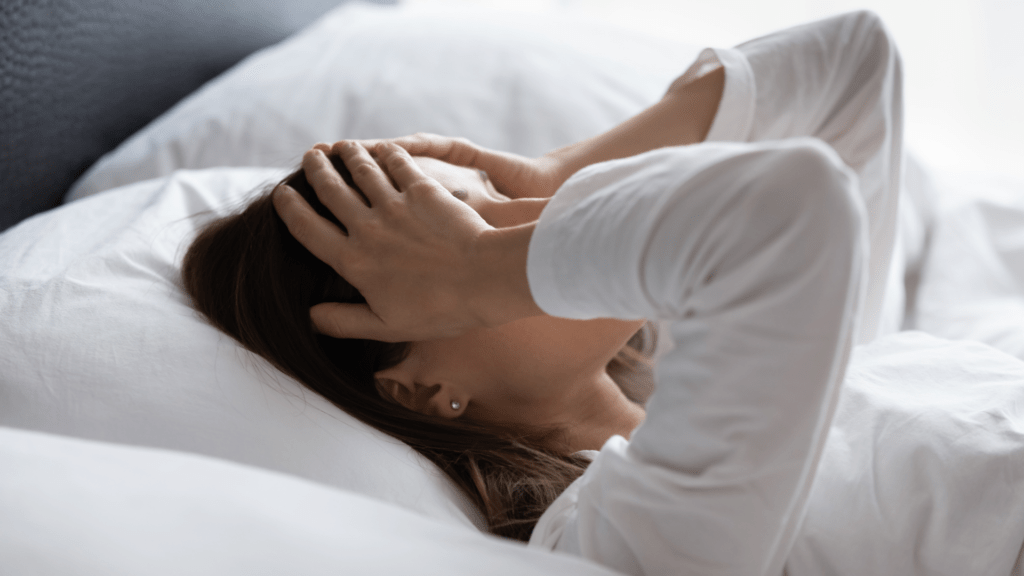
In some cases, dizziness from sleep deprivation can lead to more sleep disturbances. If you’ve ever felt “off” or “spinning” as you try to fall asleep, that’s the impact of your body’s imbalance due to extreme tiredness. This constant state of discomfort makes it challenging to get the rest you need, trapping you in a cycle of poor sleep and ongoing dizziness.
How to Stop Dizziness from Lack of Sleep
You don’t have to put up with dizziness caused by lack of sleep. While the best long-term solution is to prioritize quality sleep, there are some immediate strategies you can use to manage dizziness and regain your balance.
Hydrate and Nourish Your Body
Lack of sleep can often lead to poor eating and drinking habits. When you’re tired, you might reach for caffeine or sugary snacks for a quick energy boost. However, this can worsen dizziness. Instead, focus on staying hydrated. Dehydration can make you feel even more dizzy and lightheaded, especially when combined with exhaustion. Drinking plenty of water throughout the day can help your body manage stress and maintain balance.
In addition, make sure to eat balanced meals that include protein, healthy fats, and complex carbohydrates. Skipping meals or eating junk food can cause blood sugar levels to drop, which can exacerbate dizziness. Foods rich in magnesium, such as nuts, seeds, and leafy greens, can help regulate your nervous system and reduce the symptoms of dizziness.
Practice Deep Breathing and Relaxation Techniques
Stress and anxiety often go hand-in-hand with sleep deprivation. To counteract dizziness caused by this stress, practice deep breathing exercises. Deep, slow breaths can help calm your nervous system, reduce anxiety, and improve blood flow to your brain. This can alleviate feelings of lightheadedness and help you regain your balance.
Try the 4-7-8 breathing technique: Inhale through your nose for a count of 4, hold your breath for a count of 7, and exhale through your mouth for a count of 8. Repeat this a few times to feel more grounded and centered. This simple practice can provide immediate relief if you’re feeling dizzy from tiredness.
Get Some Light Movement
When you’re feeling dizzy, moving around might be the last thing on your mind. However, gentle movement can actually help. Light exercises like stretching or walking can increase blood flow and reduce feelings of dizziness. Just be sure to move slowly and avoid sudden changes in position, as these can worsen dizziness.
If you’re indoors, try simple stretches like reaching your arms overhead or touching your toes. If you’re able, take a short walk outside. The fresh air and natural light can boost your mood and help reset your internal clock, making it easier for you to fall asleep later.
Establish a Consistent Sleep Routine
While these immediate strategies can help, the most effective way to stop dizziness from lack of sleep is to address the root cause: poor sleep habits. Aim to establish a consistent sleep routine by going to bed and waking up at the same time every day—even on weekends. This helps regulate your body’s internal clock, making it easier to get the rest you need.
Create a relaxing bedtime routine that signals to your body that it’s time to wind down. Avoid screens, caffeine, and heavy meals before bed, as these can interfere with your ability to fall asleep. Instead, engage in calming activities like reading, listening to soothing music, or taking a warm bath. Over time, these habits can help you achieve the quality sleep needed to prevent dizziness from exhaustion.
Why You Shouldn’t Ignore Dizziness from Tiredness
Some people dismiss dizziness as just a minor inconvenience when they’re tired. However, it’s more than just a nuisance—it can be a signal that something isn’t right in your body. If you’ve ever wondered, “Can being tired make you dizzy?” or “Can exhaustion cause dizziness?” the answer is yes, and it’s crucial to understand why you shouldn’t ignore these symptoms.
The Risks of Ignoring Dizziness Due to Lack of Sleep
Feeling dizzy when tired might seem harmless, but ignoring it can lead to dangerous consequences. When you’re dizzy, your balance and coordination are compromised. This increases the risk of accidents, such as tripping, falling, or even having a car accident if you’re driving. It’s not just about feeling a bit “off-balance”—your safety is genuinely at risk.
Moreover, chronic dizziness can be a symptom of more severe health issues. Can being tired make you dizzy? Absolutely. Constant sleep deprivation and extreme tiredness put a strain on your cardiovascular system, potentially leading to irregular heartbeat, high blood pressure, and an increased risk of heart disease. The constant stress your body is under when you’re not getting enough sleep can also weaken your immune system, making you more susceptible to illness.
Ignoring the signs your body is sending you, like dizziness from tiredness, can also lead to long-term mental health issues. Sleep deprivation is closely linked to anxiety, depression, and mood swings. When you’re in a constant state of exhaustion, your body and mind can’t function properly, which can have a cascading effect on your overall well-being.
When to Seek Medical Help
While occasional dizziness due to lack of sleep can be managed with better sleep habits, persistent or severe dizziness shouldn’t be ignored. If you’re experiencing dizziness that doesn’t improve with rest, or if it’s accompanied by other symptoms like chest pain, shortness of breath, or severe headaches, it’s time to seek medical help. This could indicate an underlying health condition that needs attention.
Additionally, if you find that your dizziness is becoming more frequent or intense, despite making lifestyle changes, consult a healthcare professional. They can help determine if there’s a more serious issue at play, such as a vestibular disorder, anemia, or a neurological condition. Remember, dizziness can be a symptom of various health problems, and it’s better to get a professional opinion than to brush it off.
Practical Tips to Prevent Dizziness from Tiredness
Now that we’ve established why it’s crucial not to ignore dizziness caused by extreme tiredness, let’s dive into how you can prevent it. The good news is that there are practical steps you can take to reduce the risk of dizziness and improve your overall well-being.
Establish a Sleep-Friendly Environment
Creating a conducive sleep environment is one of the most effective ways to combat sleep deprivation and dizziness. Your bedroom should be a place of relaxation, free from distractions. Make sure your room is cool, dark, and quiet. Consider using blackout curtains, earplugs, or a white noise machine to create a peaceful atmosphere that promotes deep sleep.
Invest in a comfortable mattress and pillows that support your preferred sleeping position. An uncomfortable sleeping surface can lead to tossing and turning, disrupting your sleep cycle and leaving you feeling dizzy and fatigued the next day. Also, avoid using electronic devices like smartphones or laptops before bed, as the blue light they emit can interfere with your body’s natural sleep-wake cycle.
Stick to a Consistent Sleep Schedule
One of the best ways to prevent dizziness from tiredness is to maintain a consistent sleep schedule. Go to bed and wake up at the same time every day, even on weekends. This helps regulate your body’s internal clock, making it easier to fall asleep and wake up feeling refreshed. Consistency is key to improving your sleep quality and reducing the chances of experiencing dizziness.
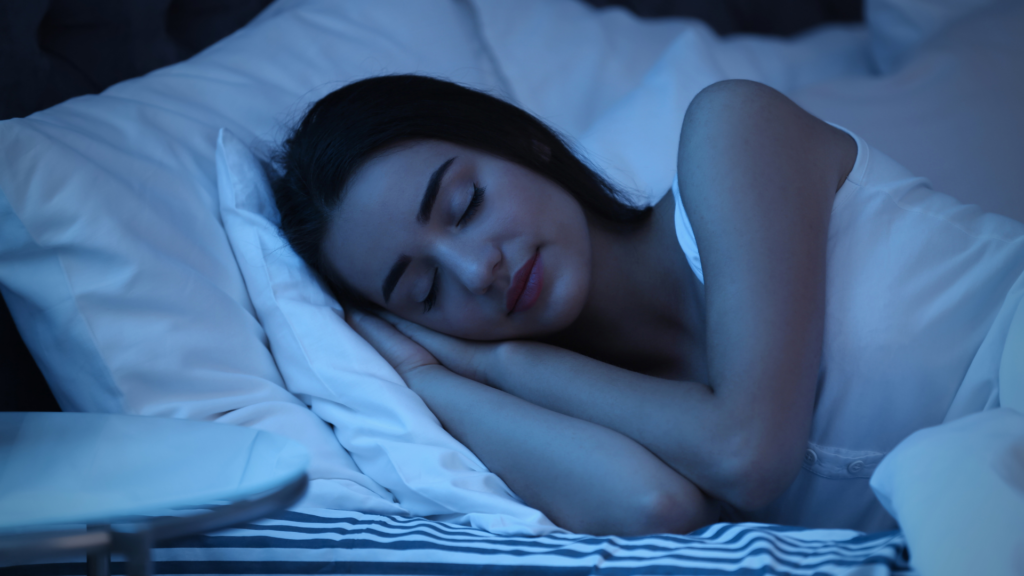
If you’re having trouble sticking to a schedule, try setting a bedtime alarm to remind you when it’s time to wind down. Start your bedtime routine 30 minutes to an hour before you want to sleep. Engage in calming activities like reading a book, taking a warm bath, or practicing deep breathing exercises. This signals to your body that it’s time to relax and prepare for rest.
Watch Your Diet and Hydration
What you eat and drink can have a significant impact on your sleep quality and how you feel when you’re tired. Avoid heavy meals, caffeine, and alcohol close to bedtime, as these can interfere with your ability to fall asleep and stay asleep. Caffeine, in particular, can stay in your system for hours, making it harder for you to relax and fall asleep.
Hydration is also crucial. Dehydration can lead to dizziness, especially when combined with lack of sleep. Make sure you’re drinking enough water throughout the day. However, try to limit your fluid intake right before bed to avoid waking up during the night to use the bathroom, which can disrupt your sleep cycle.
Incorporate Physical Activity
Regular physical activity can help you fall asleep faster and enjoy deeper sleep. Exercise reduces stress and anxiety, which can be major contributors to sleep deprivation and dizziness. Aim for at least 30 minutes of moderate exercise most days of the week, but avoid vigorous workouts close to bedtime, as they can have the opposite effect and keep you awake.
Even light activities like walking, yoga, or stretching can improve your sleep quality. Exercise not only helps you sleep better but also increases blood flow and oxygen to your brain, which can reduce feelings of dizziness and lightheadedness. Just remember to listen to your body—if you’re feeling extremely tired, opt for gentle movements that help you relax rather than intense workouts.
Limit Naps and Caffeine
While a short nap can be refreshing, long or irregular napping during the day can interfere with your nighttime sleep. If you feel the need to nap, keep it short—20 to 30 minutes—and avoid napping late in the afternoon. This will help you feel more alert without disrupting your ability to fall asleep at night.
Similarly, be mindful of your caffeine intake. If you’re sensitive to caffeine, limit your consumption to the morning hours and avoid it in the afternoon and evening. This includes not only coffee but also tea, soda, energy drinks, and even some medications that contain caffeine. By managing your caffeine intake, you can improve your sleep quality and reduce the risk of dizziness.
Home Remedies to Relieve Dizziness Caused by Lack of Sleep
Many people think that dizziness from tiredness can only be fixed by medication or complex treatments. However, several effective home remedies can alleviate dizziness caused by lack of sleep, exhaustion, or fatigue. If you’ve been asking, “Can being tired make you dizzy?” or “Can lack of sleep cause dizziness and lightheadedness?” these remedies can help you regain your balance naturally.
Stay Hydrated
Dehydration is a common cause of dizziness, especially when combined with sleep deprivation. To counter this, make sure you’re drinking enough water throughout the day. When you’re tired, it’s easy to forget to hydrate, which can make dizziness worse. Aim for at least 8 glasses of water daily, and consider adding a pinch of salt and sugar to one of those glasses to help replenish electrolytes. This simple trick can quickly relieve dizziness from tiredness.
Eat a Balanced Snack
Low blood sugar can cause dizziness, particularly if you’re running on little sleep. A balanced snack combining protein and complex carbohydrates can stabilize your blood sugar levels. For example, try a small bowl of yogurt with some fruit or a slice of whole-grain toast with peanut butter. These foods provide a quick energy boost and can help reduce that dizzy, lightheaded feeling.
Practice Deep Breathing
Stress and anxiety can exacerbate dizziness, especially when you’re exhausted. Deep breathing exercises can help you calm down and improve blood flow to your brain. Sit or lie down in a comfortable position, close your eyes, and take slow, deep breaths. Inhale through your nose for a count of four, hold for a count of four, and exhale through your mouth for a count of four. Repeat this process for a few minutes to ease dizziness and promote relaxation.
Use Essential Oils
Certain essential oils, like peppermint and lavender, have calming properties that can help alleviate dizziness and vertigo caused by lack of sleep. You can inhale these oils directly from the bottle, add a few drops to a diffuser, or mix them with a carrier oil and apply them to your temples and neck. The soothing aroma and potential health benefits of essential oils can help you feel more grounded and less dizzy.
Try Acupressure
Acupressure is an ancient practice that involves applying pressure to specific points on the body to relieve symptoms like dizziness. One such point is the Pericardium 6 (P6) point, located on the inner forearm, three finger-widths below the wrist. Gently press on this point with your thumb for a few minutes to help reduce dizziness and nausea. This simple technique can be surprisingly effective, especially when tiredness is the root cause of your symptoms.
Get Some Fresh Air
Lack of sleep can lead to a buildup of carbon dioxide in your body, which may cause dizziness. Stepping outside for a few minutes to get some fresh air can help. The change of environment and a few deep breaths of fresh air can increase your oxygen levels, helping you feel more alert and balanced.
When to See a Doctor for Dizziness from Sleep Deprivation
While home remedies can be helpful, it’s important to recognize when dizziness might be a sign of a more serious issue. Many people brush off dizziness, thinking it’s just a normal part of being tired. However, if you’re experiencing persistent or severe symptoms, it may be time to seek professional advice. Let’s explore when you should consider seeing a doctor for dizziness caused by lack of sleep, exhaustion, or extreme tiredness.
Persistent or Worsening Symptoms
If you’ve tried home remedies and lifestyle changes but still find yourself asking, “Can lack of sleep cause vertigo?” or “Why am I dizzy when tired?” it could indicate a deeper issue. Persistent dizziness, especially if it worsens over time, shouldn’t be ignored. Your doctor can perform tests to rule out conditions like anemia, inner ear problems, or neurological disorders that might be contributing to your symptoms.
Dizziness with Other Concerning Symptoms
Dizziness that occurs alongside other symptoms like chest pain, difficulty breathing, sudden headaches, blurred vision, or weakness could signal a more serious health problem. For example, these symptoms might indicate cardiovascular issues, a stroke, or severe dehydration. If you experience dizziness along with any of these red flags, seek medical attention immediately.
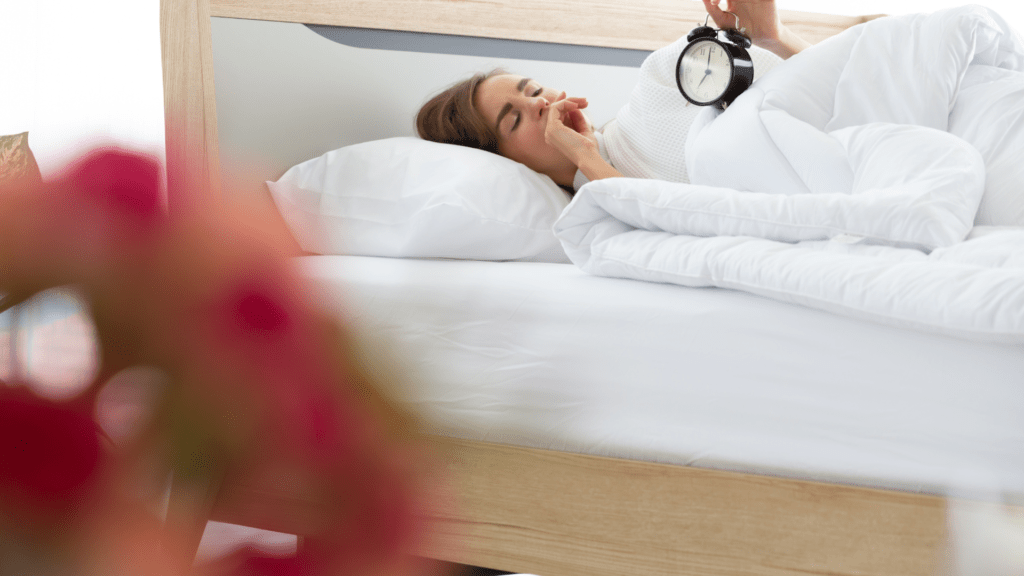
Impact on Daily Life
If dizziness from tiredness or sleep deprivation is affecting your ability to function in daily life—like interfering with work, driving, or simple tasks—it’s important to consult a healthcare professional. Chronic dizziness can lead to a decline in your quality of life and increase your risk of accidents. A doctor can help identify the underlying cause and suggest appropriate treatment options.
Unexplained Dizziness
If you’re experiencing dizziness and cannot link it directly to lack of sleep, exhaustion, or fatigue, it’s wise to get a medical evaluation. There are numerous potential causes of dizziness, and some require prompt treatment. For instance, inner ear disorders, such as benign paroxysmal positional vertigo (BPPV) or Meniere’s disease, can cause dizziness and balance problems. Only a healthcare professional can accurately diagnose and treat these conditions.
Severe Episodes of Dizziness or Vertigo
Severe dizziness or vertigo, where it feels like the room is spinning around you, can be extremely distressing. If you experience intense dizziness or episodes of vertigo that last for more than a few minutes, it’s time to see a doctor. These symptoms could point to inner ear issues, vestibular migraines, or even neurological conditions. Getting an accurate diagnosis can help you find the right treatment and avoid complications.



